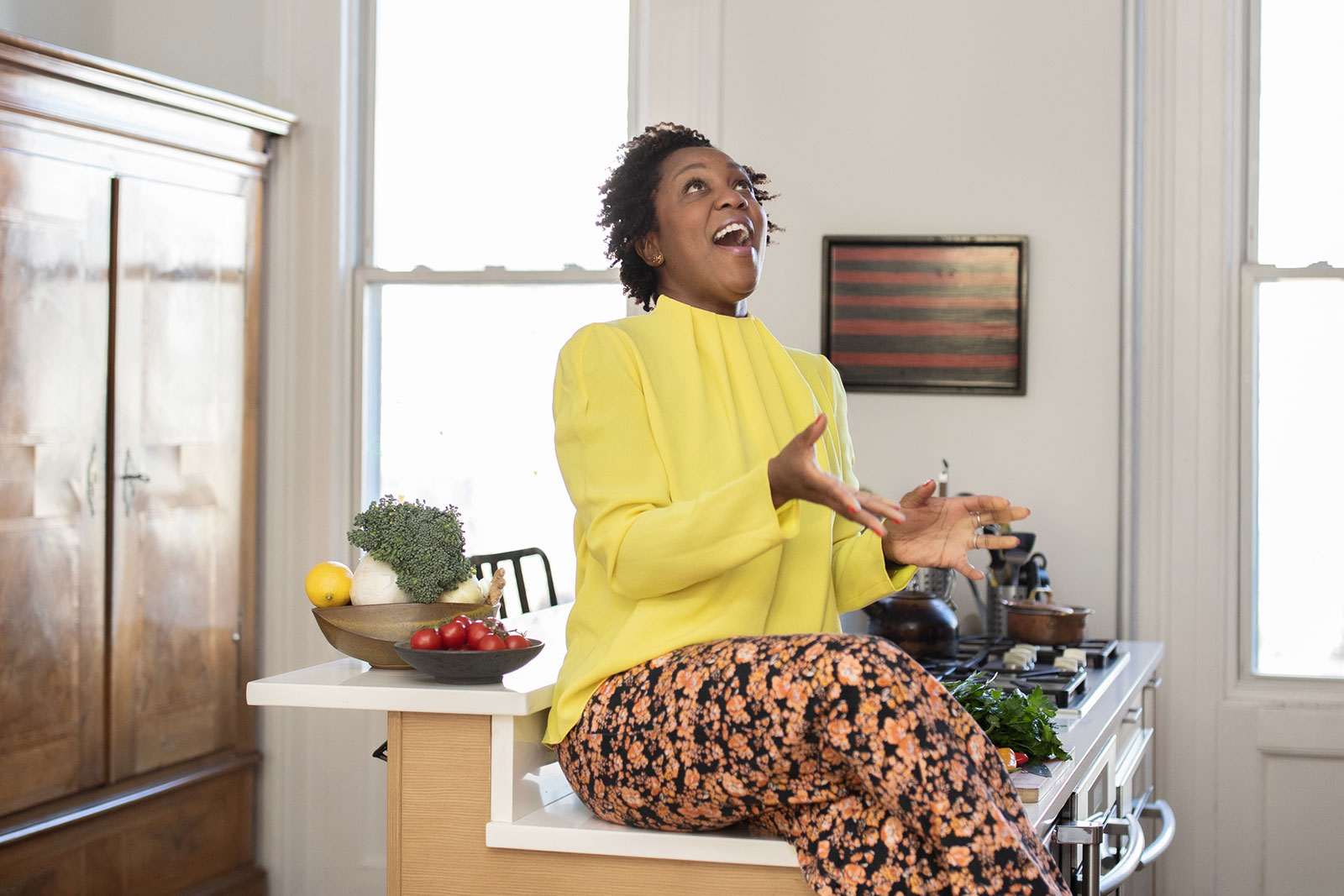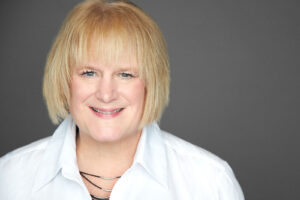Maya Feller (@MayaFellerRD) is a Brooklyn-based registered dietician specializing in nutrition for risk reduction of non-communicable diseases. She runs Maya Feller Nutrition where she provides clients with medical nutrition therapy. Feller has also appeared on “Dr. Oz” and “Good Morning America” and written for various media outlets to promote nutrition education. We talked with Feller about the importance of nutrition when it comes to cancer, and her anti-racist, anti-bias, culturally sensitive approach to healthcare.
What is your focus, and what about the nutrition and wellness field drew you in?
I’m a registered dietician who focuses on risk reduction of the development of non-communicable diseases, as well as managing diagnoses that may be present. Additionally, I write about nutrition and talk on-air about nutrition for various outlets. I also teach nutrition.
I was drawn to nutrition, a second career for me, simply out of curiosity around metabolism of foods. I was training for the Boston marathon, thinking about food all the time and wondering what happens [in our bodies] with the food that we eat.
I went to NYU [for my degree] and started my rotations in oncology. Afterwards, I transitioned to infectious disease. Now at my practice, I have people who have been touched by cancer and we work together on what a pattern of nourishment looks like now considering their tolerance, work-life balance, etc.
How important is nutrition and wellness when it comes to managing diseases such as cancer, and what harm might result from lack of access?
I work with people on how to include foods [in their diet] that are nutrient-rich, fiber-rich or minimally processed, and how to decrease foods that are pro-inflammatory with added sugar, added salts, synthetic fats. This is especially relevant with non-communicable diseases that are modifiable or preventable […] like some cancers.
We know that there’s certain ways of interacting with toxins, specifically alcohol, that can increase a person’s risk for developing some cancers. I work with my patients to explore how those types of toxins show up in their regular patterns so that they think about modification.
With [the COVID-19 virus], alcohol consumption is at an all-time high. When speaking about access, I mention alcohol because in Black, Brown and Indigenous communities, there’s more access to alcohol – which is a pro-inflammatory toxin that increases your risk for cancer – but there’s less access to the phytonutrient foods that are fiber-rich that decrease risk. BIPOC communities are disproportionately burdened with an abundant access of alcohol and processed foods and limited access to ways of moving your body in a safe way. This is what inequality looks like. When broken down by race and socioeconomic status, you see across the board that Black, Brown and Indigenous communities don’t have the variables that allow them to express health.
Survivorship is really dependent on the type of cancer, but also on when it’s diagnosed and how it’s treated. When people are so disadvantaged [with health access], there can be huge outcomes.
You’ve written about racism being a public health issue. How can this be addressed both societally and at a healthcare provider level to ensure care is more accessible, culturally sensitive and inclusive?
It’s linked to structure and policy. This is, unfortunately, where health and politics collide. When we start to put people over profit, that becomes something that is democratic. It becomes about who is in a position to make powerful change.
If there is an individual provider in a hospital center who cares about anti-bias, anti-racist patient care, they should petition their department to put new policies in place alongside other like-minded individuals within that same system.
Sometimes when you’re so marginalized, you’re tired. Black and Brown people go into hospital settings, ask questions and never get answers. For hospital administrators and people who are making those decisions, it’s important to think about what equitable patient care looks like and how they can continue to make profits not at the expense of people’s lives. Part of what we have to start talking about in healthcare is restructuring, reallocation and dismantling.
How important can patient self-advocacy and accessible health literacy be when navigating these disparities?
Patients do need to make their voices heard. But as providers, even if patients come in ready to self-advocate, we use language that throws them off. Like, “Do you understand what I’m saying?” rather than, “What do you understand about the diagnosis that you have, and how can I help you?” It’s pretty hostile, so I think it goes two ways.
What Tracie Collins [of National Black Doulas Association] suggested is: as a patient, document and escalate up the chain. If a provider shuts you down, note the time and date, who the provider is and ask again. Continue documenting if you’re shut down a second time and ask to speak to another provider in the system. Continue moving up the ladder if you’re still being shut down. By the time you reach whoever is in charge, they’re mad because it shows that every single person under them didn’t address your needs.
I also encourage patients to connect with case management workers that can help them navigate this, especially if they have public insurance. Then they have a partner with them going into these appointments, sitting by their side through all of it and helping them advocate.
To learn more about Feller’s work or inquire about nutrition counseling, visit mayafellernutrition.com. Feller also shares inclusive nutrition tips and education on her Instagram and Twitter, @MayaFellerRD.







